Martial arts, particularly karate, have become a popular choice for parents seeking extracurricular activities that promote overall personal development for their children. Karate classes for kids provide numerous benefits beyond physical fitness, including instilling discipline, confidence, focus, and leadership skills. Integrating martial arts into a child’s routine can contribute to a well-rounded upbringing while providing an engaging and enjoyable outlet for energy and creativity.
Karate programs are suitable for children of various ages and abilities, with experienced instructors offering tailored guidance to meet each student’s individual needs. Instructors prioritize technique and self-improvement, encouraging children to compete against themselves rather than focusing on outperforming their peers. This unique aspect of martial arts fosters a supportive and inclusive environment that promotes personal growth and self-assurance.
Additionally, enrolling children in Premier Martial Arts, Tiger Schulmann’s Martial Arts, or other institutions with experienced and certified instructors can ensure a high-quality karate education. By participating in these classes, children develop crucial life skills that translate to success both inside and outside of the dojo, making martial arts an invaluable investment in their future.
Reader's Roadmap
The Importance of Martial Arts for Kids
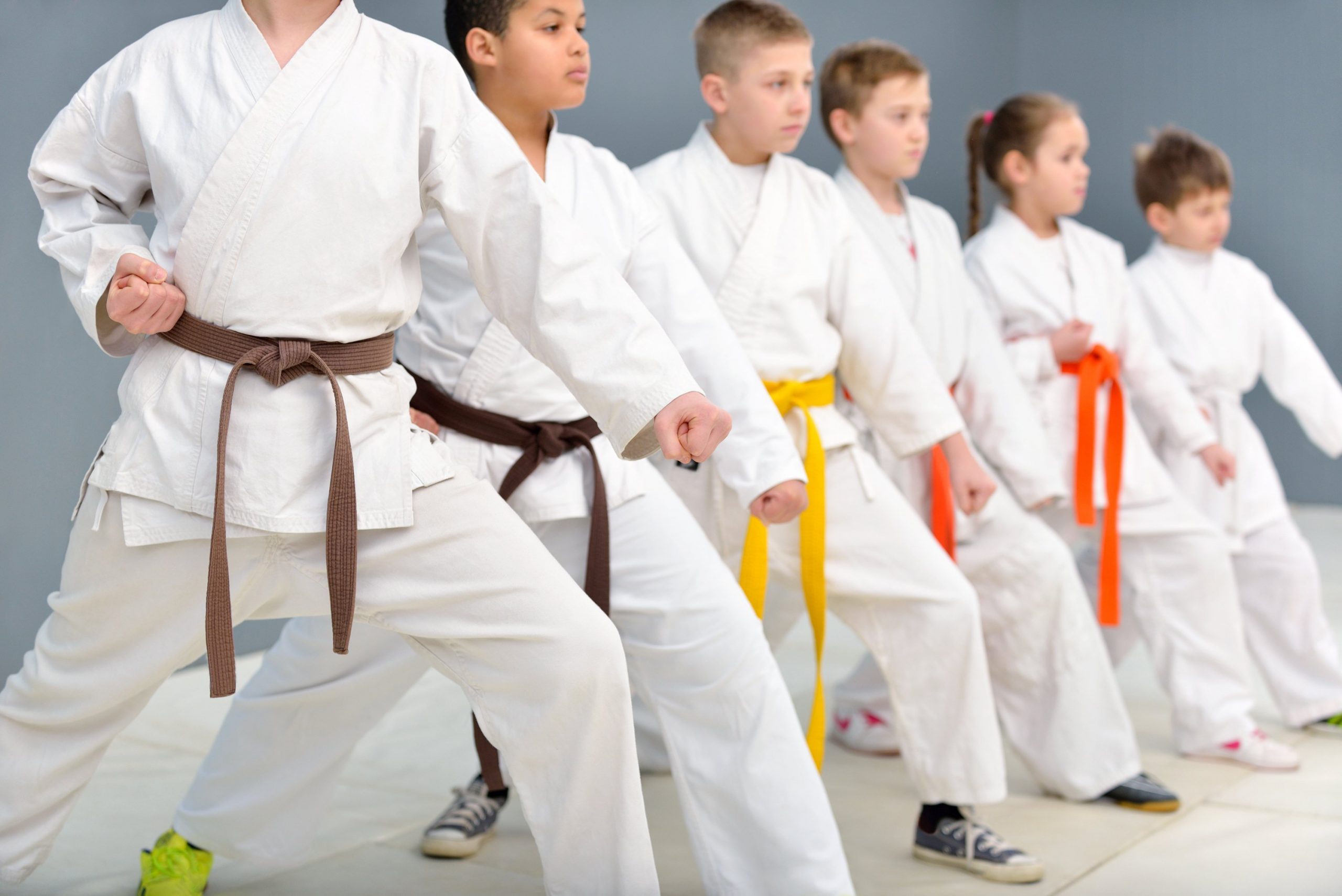
Martial arts classes offer numerous benefits for children, as they promote not only physical fitness but also mental and emotional development. One key aspect of martial arts is that they are often designed to be fun and engaging, ensuring that kids stay interested and motivated throughout the lessons.
Confidence and Self-Defense
Enrolling in karate classes contributes to a child’s self-defense skillset, building their confidence and allowing them to feel safer in various situations. This can be particularly important when dealing with bullies or other potential threats. As children progress and achieve new belt levels, their sense of accomplishment further boosts their self-esteem.
Physical and Mental Fitness
Karate and other martial arts help improve a child’s overall physical fitness. They encourage flexibility, strength, coordination, and endurance. In addition, practicing martial arts can also improve mental fitness, including focus, concentration, and mental toughness. This discipline also supports the development of healthy habits that contribute to a well-rounded, active lifestyle.
Character Development and Social Skills
Martial arts often emphasize character-building values such as respect, self-discipline, and self-control. These lessons are translated into everyday life, promoting personal growth and maturity. Additionally, martial arts classes provide opportunities for children to interact with others, fostering social skills and teamwork.
Combating Bullying and Developing Leadership Skills
Martial arts training instills a sense of responsibility and common sense in children, empowering them to stand up against bullying and make the right choices in challenging situations. Moreover, as they advance in their training, kids often take on leadership roles, assisting their instructors and guiding their peers. This invaluable experience enhances leadership and listening abilities, preparing them for future endeavors.
In summary, participating in martial arts classes provides children with a well-rounded experience that goes beyond physical fitness. By emphasizing personal growth, discipline, and social interaction, karate and similar disciplines help children develop valuable life skills and qualities that will benefit them throughout their lives.
Choosing the Right Karate Class
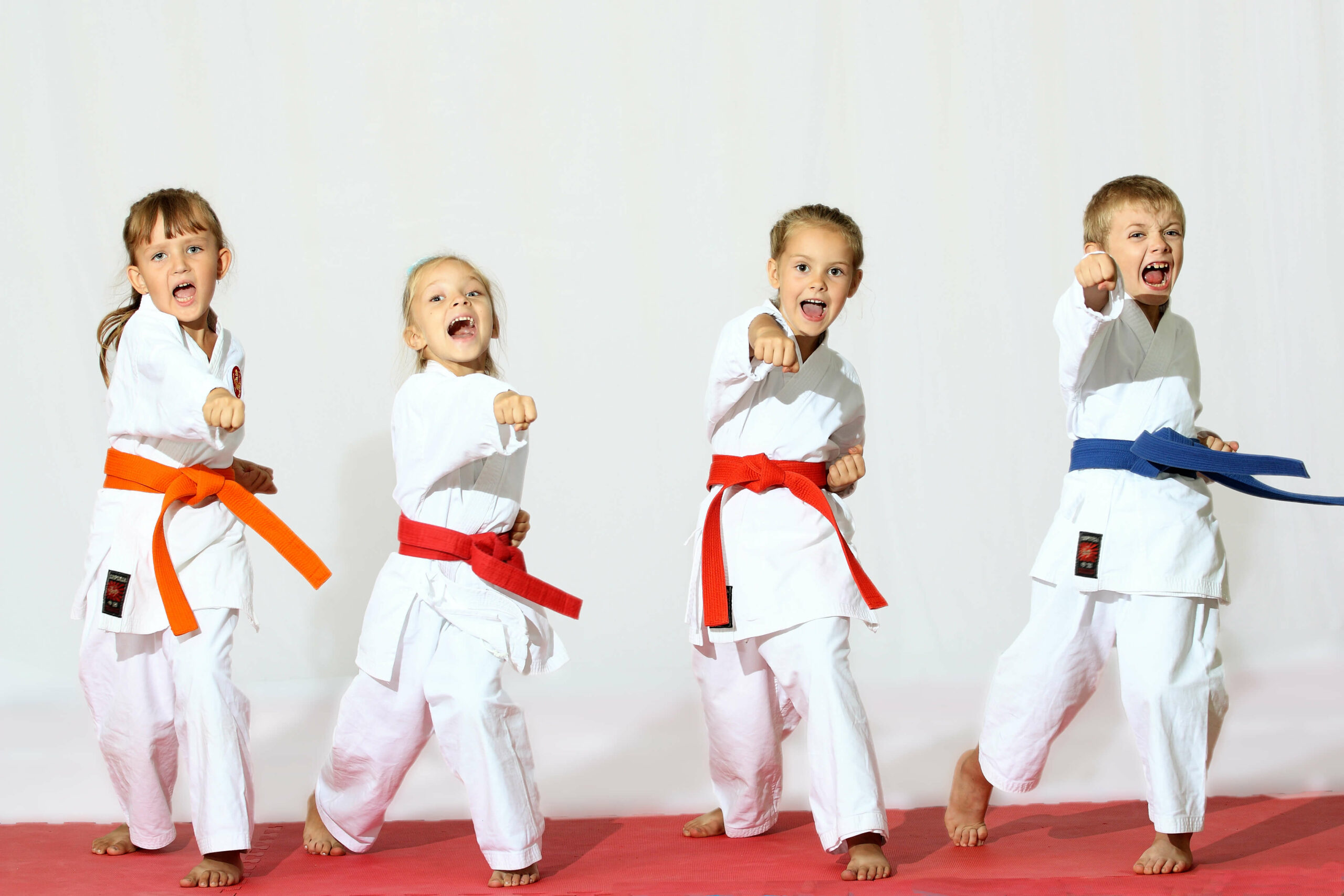
When looking for karate classes for kids, it’s essential to consider factors such as the child’s interests, the instructors, and the specific martial arts discipline. Being confident and knowledgeable about the available options can help parents make an informed decision.
In the world of martial arts, there are various disciplines to choose from, such as karate, jiu-jitsu, judo, and more. Each discipline requires different skills and techniques, and it’s critical to choose one that aligns with the child’s personality and interests. Karate, for example, has a strong focus on striking, whereas jiu-jitsu and judo lean towards grappling techniques.
The instructors play a crucial role in guiding children throughout their martial arts journey. Therefore, it’s important to look for certified and experienced black belt instructors who can provide a safe and enriching learning environment. They should also be adept at teaching children of different age groups.
Narrowing down the options also involves considering various factors, such as:
- Location: Choose a conveniently located class to make it easier for both parents and children to attend regularly.
- Schedule: Ensure the class schedule fits well with the child’s other activities and routines.
- Pricing: Research class fees and ensure they are within the budget without compromising on the quality of instruction.
When visiting different karate classes, it’s a good idea to observe the classes in action. Take note of the teaching style, interaction with students, and overall atmosphere. Some instructors emphasize discipline and form, while others prioritize fun and creative approaches.
Finally, include the child in the decision-making process as their interest and enthusiasm are essential for long-term engagement in the chosen martial arts discipline. With a clear understanding of the child’s preferences and the available options, parents can confidently select the right karate class for their child to enjoy and prosper in.
What to Expect in a Karate Class
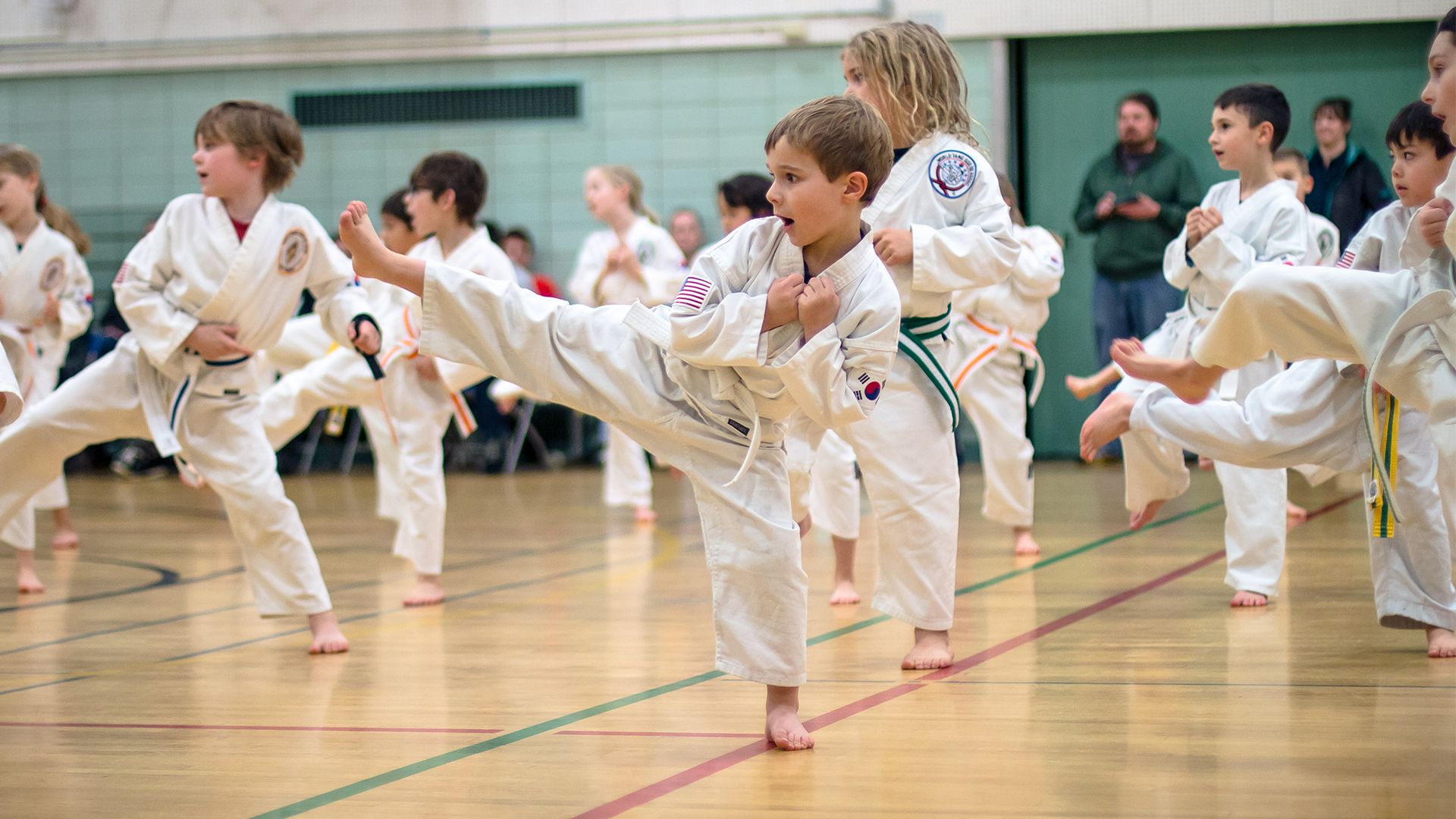
A typical karate class for kids begins with a warm-up that includes stretching exercises and basic aerobic activities to prepare the body and the mind for physical exertion. This warm-up phase helps improve the child’s overall fitness levels and prevents injuries.
After the warm-up, kids are introduced to various techniques that are fundamental to karate. These techniques involve a combination of defensive and offensive skills aimed at improving strength, hand-eye coordination, motor skills, and self-defense abilities.
In addition to learning specific techniques, students engage in forms, which are sequences of different movements practiced in a set order. These forms promote discipline, concentration, and attention span, as they require the practitioner to focus on executing each movement correctly and fluidly.
An essential aspect of karate classes is the development of disciplinary values such as respect and self-control. Teachers emphasize the importance of respecting the instructor, peers, and the dojo environment, which helps instill courteousness and humility in the students.
As the students progress, they usually take part in sparring sessions. The instructor ensures that these sessions remain safe by closely supervising them and making sure that both partners wear appropriate protective gear.
Throughout the class, your child will experience both physical and mental challenges. They will be required to perform structured exercises, and these lessons may require intense concentration and hard work. The child needs to understand that they must continually push their limits to develop their skills and become better at their practice.
In conclusion, a karate class for kids offers an enriching experience that focuses on physical fitness, technique, discipline, and personal growth. The lessons learned in the dojo can positively impact many aspects of a child’s life, including their confidence, self-esteem, and overall behavior.
Benefits of Karate over Other Sports
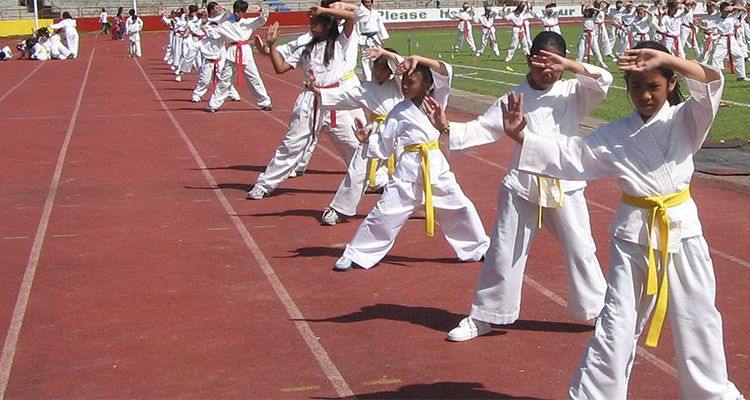
Karate, as a martial art, offers numerous benefits for children when compared to other sports such as boxing, mixed martial arts, taekwondo, and kickboxing. Participating in karate classes helps children develop essential life skills, improve their physical fitness, and boost their mental strength.
Confidence and self-discipline: Karate training instills a strong sense of confidence in children, as they learn to trust their abilities and physical strength. Coupled with this is the development of self-discipline, which plays an essential role in both their training and their everyday lives.
Focus and coordination: Karate training enhances a child’s ability to focus and maintain concentration on specific tasks. Additionally, the practice improves hand-eye coordination, as children must learn to execute precise movements during their training.
Agility and balance: Unlike other sports that may primarily target strength or endurance, karate emphasizes agility and balance. Through stances and movements, children learn to establish a solid foundation that promotes their equilibrium and swift footwork.
Strength and flexibility: Karate provides a comprehensive workout that not only develops muscular strength, but also improves flexibility. Karate requires the usage of a wide range of muscles, allowing for enhanced overall health and conditioning.
Endurance and weight loss: As an aerobic activity, karate significantly contributes to weight loss and cardiovascular endurance. The intense nature of the training sessions ensures that calories are burned, and the heart rate is elevated, fostering a healthier lifestyle for children.
Leadership skills: In karate, children have the opportunity to take on leadership roles as they progress through the ranks and, eventually, assist in teaching classes. This responsibility helps them develop essential communication and interpersonal skills that can be applied throughout their lives.
In summary, karate offers a multitude of benefits that extend beyond the realm of physical fitness. By fostering self-discipline, focus, coordination, and leadership skills, children can experience personal growth and character development that reaches far beyond the dojo.
Karate Classes: A Holistic Approach to Child Development
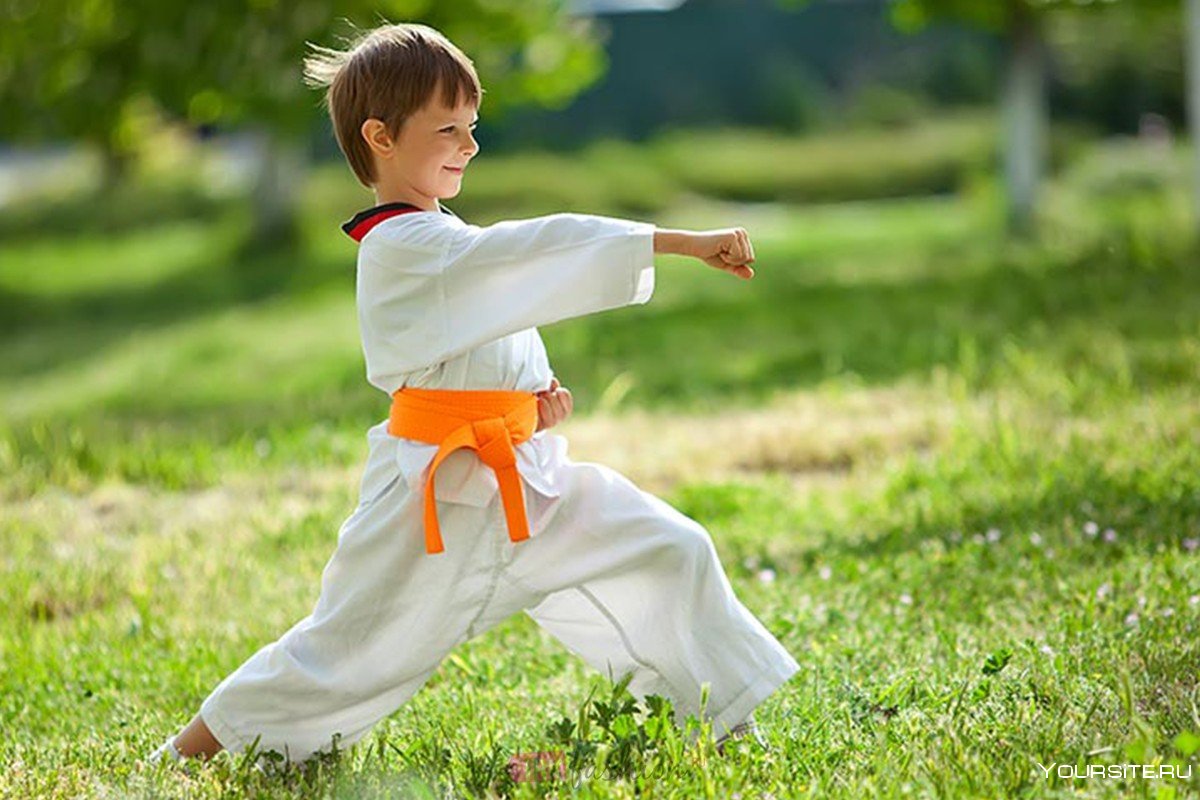
Karate is more than just a martial art; it is an engaging activity that can significantly shape a child’s character and development in multiple ways. Through training, kids can develop a range of key attributes such as confidence, self-discipline, and respect for themselves and others.
The foundation of karate is built on strong character development. Kids learn valuable life lessons as they progress through the ranks, such as humility, perseverance, and responsibility. For instance, following a structured curriculum during training helps foster self-discipline and commitment.
Moreover, karate promotes mental toughness by challenging kids to push through their limits. As they focus on their progress, children become more resilient and capable of handling setbacks. This mental strength will prove beneficial not only in the dojo but also in other areas of life.
Positive Habits Acquired Through Karate Training:
- Regular physical activity
- Heightened focus and concentration
- Enhanced problem-solving skills
- Effective stress management
Karate classes also significantly impact a child’s social skills. Engaging in group exercises allows children to develop camaraderie with their peers while learning mutual respect and cooperation. Consequently, these interactions can improve their communication skills and foster friendships that last a lifetime.
Another key aspect of karate training involves building and maintaining self-esteem. Children feel a sense of accomplishment and pride as they advance to higher belt levels. Furthermore, the recognition they receive for their hard work and improvements can greatly boost their confidence in their abilities.
In conclusion, the holistic approach of karate classes equips children with vital life skills and instills positive values that contribute to their overall growth and development. Participating in such programs can help children become well-rounded individuals, better prepared to face life’s challenges with confidence and resilience.
Practices and Techniques in Kids Karate Classes
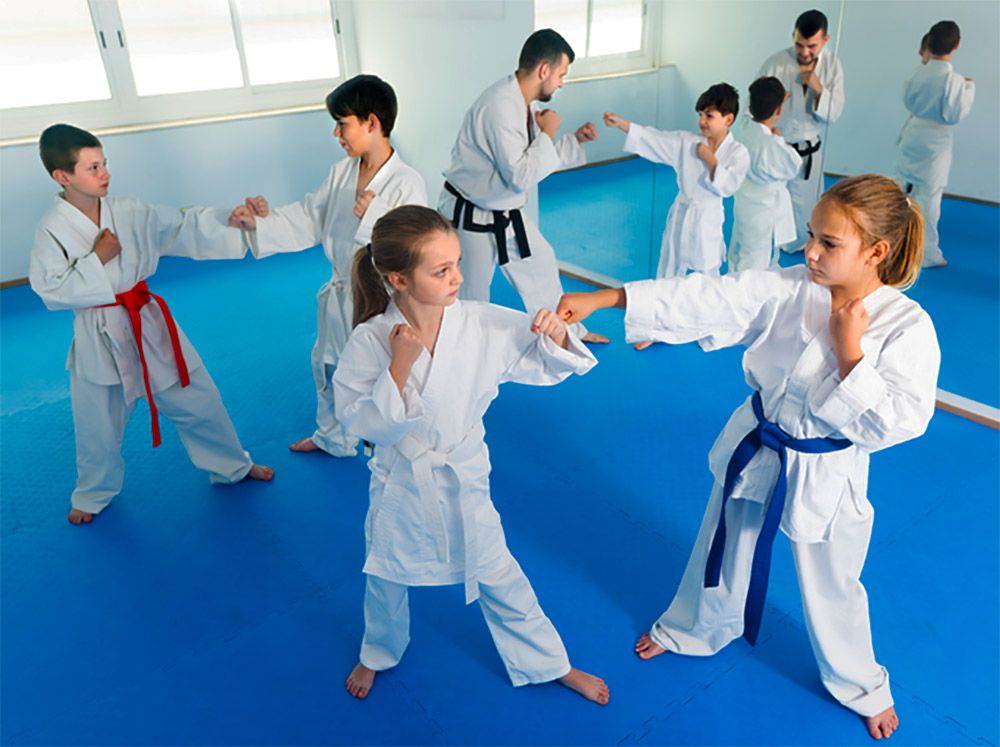
In kids karate classes, a variety of techniques and practices are employed to ensure that the children are not only learning self-defense but also developing essential life skills. From physical fitness to mental discipline, these classes cover every aspect of a child’s development.
One of the key elements in karate is the forms or kata. These are pre-arranged sequences of movements that help in building muscle memory and understanding proper technique. As the children practice these forms, they also develop their balance, agility, and hand-eye coordination.
Sparring is another vital component of kids karate classes. This practice involves controlled contact between two students, allowing them to apply their learned techniques in a safe environment. In addition to improving their combat skills, sparring builds endurance, self-confidence, and teaches kids the importance of mutual respect.
Incorporating various fitness activities is also essential for children in karate classes. These activities not only improve their strength and endurance but also enhance their motor skills, which are crucial for executing advanced techniques. Some common fitness activities include:
- Running and jumping exercises
- Strength training (e.g. push-ups, squats)
- Stretching and flexibility drills
To improve the kids’ learning experience, classes often introduce a certain level of challenge into their everyday practice. Coaches can do this by setting achievable goals and recognizing their students’ progress and accomplishments. This encourages the children to push themselves further and develop their determination and perseverance.
In conclusion, kids karate classes are designed to teach self-defense techniques while also focusing on the overall physical and mental development of the child. Through a combination of forms, sparring, fitness activities, and carefully planned challenges, children can learn important life skills while having fun and staying fit.
Nutrition and Fitness Tips for Kids Practicing Karate
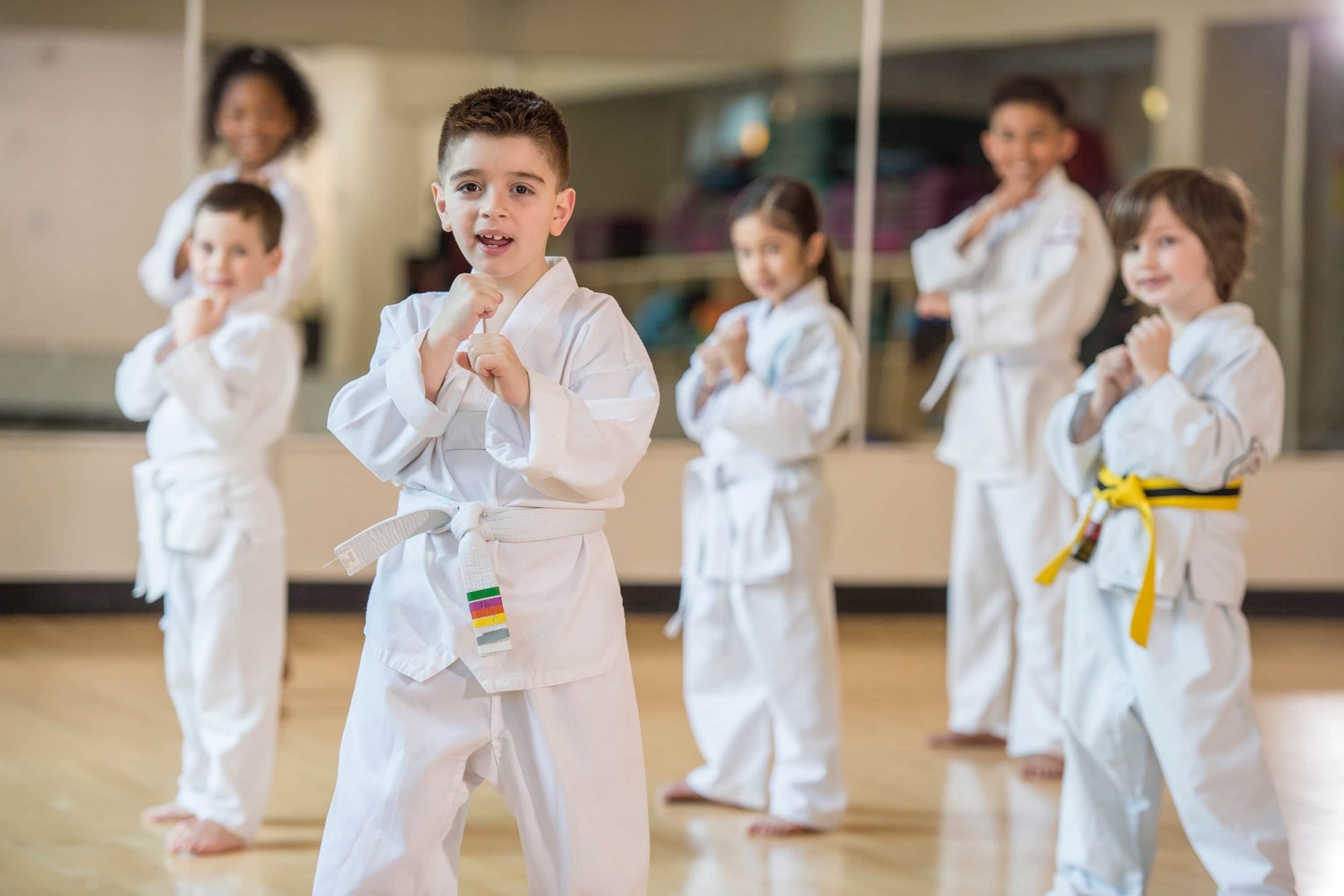
Karate is a popular martial art that helps kids develop important skills such as self-discipline, focus, strength, and overall fitness. To maximize the benefits of karate, it’s essential for kids to maintain a healthy lifestyle both inside and outside the dojo. Here are some nutrition and fitness tips for kids practicing karate.
A sensible diet is crucial for young martial artists. Proper nutrition fuels their bodies and supports muscle growth, endurance, and recovery. Focus on including a balanced mix of carbohydrates, proteins, and healthy fats in their meals. Carbohydrates provide energy, which is essential during high-intensity training sessions. Good sources of carbohydrates include whole grains, fruits, and vegetables. Protein plays a critical role in muscle development and repair. Some excellent protein sources are lean meats, fish, eggs, and legumes. Healthy fats, such as those found in avocados, nuts, and olive oil, help with nutrient absorption and brain function.
Maintaining a healthy body weight is important for kids practicing karate, as it can help improve their speed, agility, and stamina. Karate is a fantastic activity for weight loss in children, as it involves various exercises, such as push-ups, jumping jacks, and stretches, which improve muscle mass and boost cardiovascular health. Regular practice also keeps their bodies fit, toned, and flexible as they grow into adults.
In addition to a healthy diet, proper conditioning plays a vital role in improving a child’s performance in karate and reducing the risk of injuries. Incorporating a mix of cardio exercises, strength training, and flexibility exercises into a child’s routine will help them develop a well-rounded fitness level. Sports that complement karate, such as swimming or bicycling, can also contribute to overall cardiovascular health.
Karate is an excellent avenue for promoting character development in children. The practice instills values such as respect, self-control, and perseverance. To enhance these principles, encourage your child to set specific goals related to their karate practice. This could include mastering a new technique, earning their next belt rank, or simply improving their focus during training.
In conclusion, a combination of proper nutrition, regular conditioning, and dedication to karate practice can help children excel in this martial art. By implementing these tips, young karatekas will enjoy a more rewarding and fulfilling experience in their pursuit of physical fitness and personal growth.
Martial Arts Schools to Consider
There are several martial arts schools offering kids’ karate classes worth considering for parents who want their children to learn valuable life skills. Keep in mind this list is not exhaustive, but it offers a starting point for those looking for reputable institutions.
One school known for providing quality karate classes for children is Tiger Schulmann’s. With an environment that is fun and action-packed, their classes are designed to build up a child’s attention span, determination, and cooperative skills while also teaching them to speak up for themselves.
Another great option is Premier Martial Arts, which emphasizes teaching children disciplines like respect, determination, and hard work through martial arts training. Their karate classes encourage students to push beyond their limits while focusing on leading a healthy and active lifestyle.
For those living in Reno, NV, City of Reno offers a variety of martial arts classes, including Shotokan karate, to serve the local community. At this facility, children can learn essential skills that will carry over into other aspects of their lives, contributing to their overall growth and development.
Weehawken Creative Arts is another institution worth considering. Located in Montrose, CO, this creative arts center provides martial arts classes to kids of all ages. Their comprehensive programs cover various styles and techniques, ensuring that students receive well-rounded training.
For residents in Florida, there are FL martial arts schools offering karate classes for both children and adults. These institutions aim to share the art of karate while promoting essential values such as discipline, focus, and perseverance in their students.
Lastly, keep an eye out for endorse karate classes offered by community centers like EMNECC in Reno, NV, known for their diverse range of programs tailored to suit children’s ages and skill levels.
In summary, there are numerous martial arts schools offering excellent karate classes for kids. Regardless of your location, there is likely a reputable institution nearby that can help your child develop valuable skills through martial arts training.

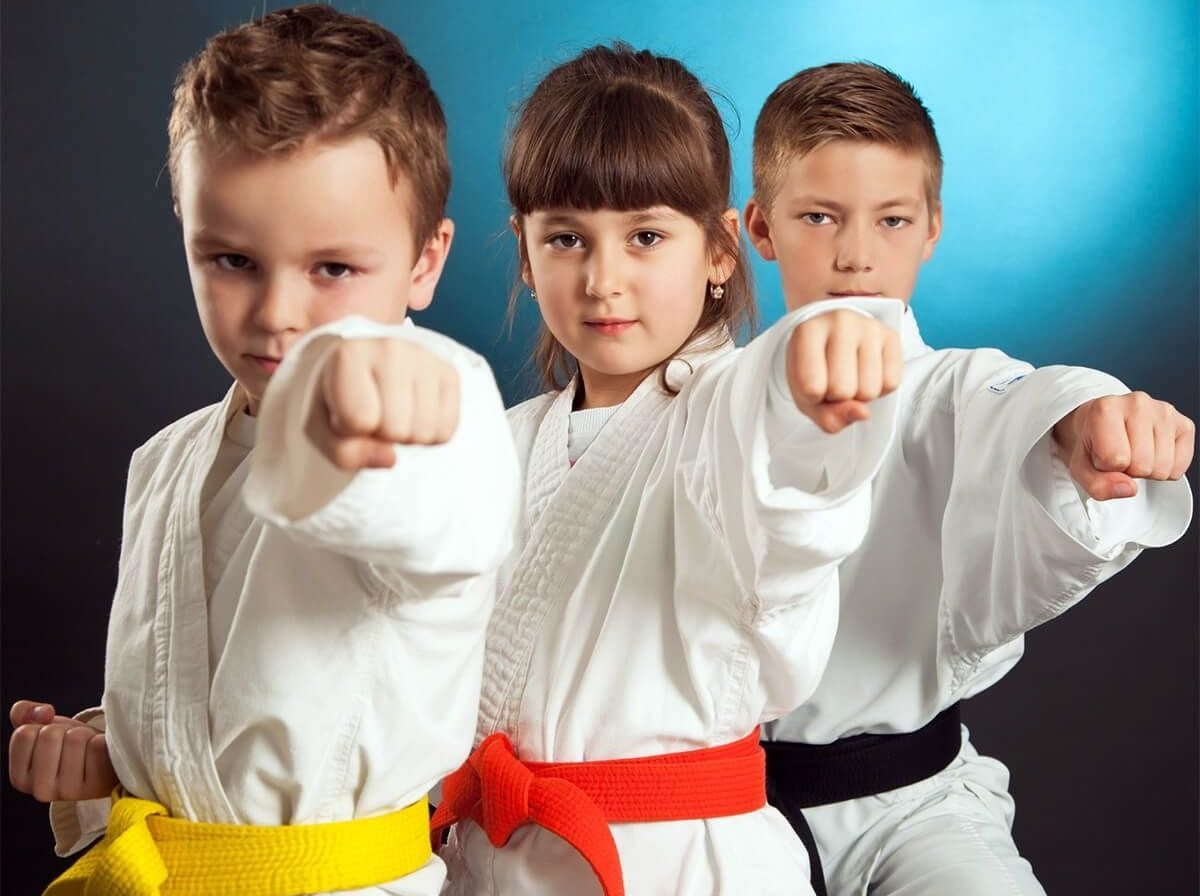
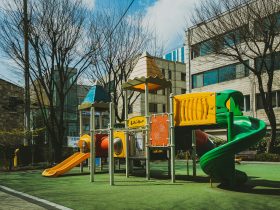


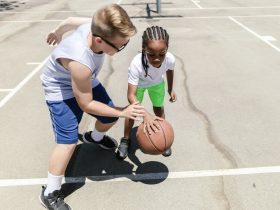

Leave a Reply
View Comments